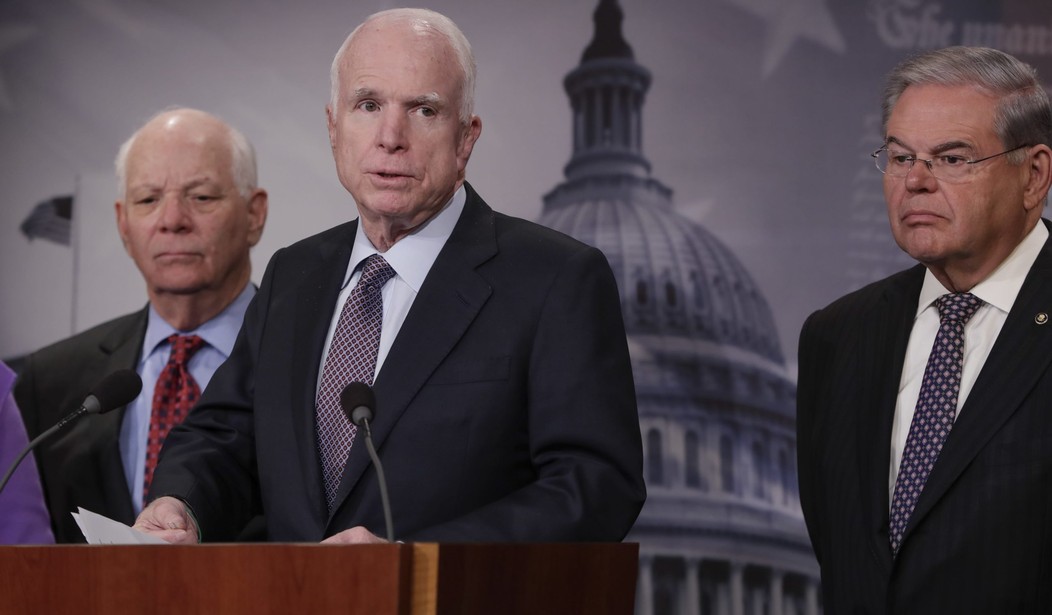WASHINGTON — At the beginning of August, President Trump signed veto-proof sanctions legislation targeting Russia, Iran and North Korea, which included a provision requiring the administration to name targeted entities and implement sanctions on Russia’s defense and intelligence sectors.
The Oct. 1 deadline in the Countering America’s Adversaries Through Sanctions Act has come and gone.
“The delay calls into question the Trump administration’s commitment to the sanctions bill which was signed into law more than two months ago, following months of public debate and negotiations in Congress,” Senate Armed Services Committee Chairman John McCain (R-Ariz.) and Senate Foreign Relations Committee Ranking Member Ben Cardin (D-Md.) said in a joint statement today. “They’ve had plenty of time to get their act together.”
“In addition to the administration’s lack of responsiveness on this deadline, there does not appear to be a significant diplomatic effort to engage our allies in Europe and lead an effort to increase pressure on Moscow,” they added. “Congressional intent was clear, reflected in the overwhelming bipartisan majority in favor of the legislation.”
McCain and Cardin wrote to Trump on Sept. 28, stressing how “critical” it is that his administration “robustly enforce” the new sanctions law, which required by Oct. 1 “regulations or other guidance to specify the persons that are a part of, or operate for or on behalf of, the defense and intelligence sectors of the Government of the Russian Federation.”
The senators strongly urged “a robust and comprehensive implementation plan for all aspects of the law and to work in close consultation with Congress to ensure a fulsome reflection of congressional intent.”
“We again request that the administration respond to our letter, and engage Congress in a serious way moving forward,” they added.
When Trump signed the legislation, he issued a signing statement complaining that Congress had tied his business-dealmaking skills with the stipulation that lawmakers approval any Russia sanctions rollback and that the bill didn’t recognize Russian rule over land forcibly taken.
The president also complained that sections about Iran ballistic missile sanctions, enforcement of arms embargoes, Russia sanctions, cybersecurity sanctions on Moscow, corruption and human rights sanctions on Russia, and arms sales to Syria “would require me to deny certain individuals entry into the United States, without an exception for the president’s responsibility to receive ambassadors.”‘
“My administration particularly expects the Congress to refrain from using this flawed bill to hinder our important work with European allies to resolve the conflict in Ukraine, and from using it to hinder our efforts to address any unintended consequences it may have for American businesses, our friends, or our allies,” Trump added.









Join the conversation as a VIP Member